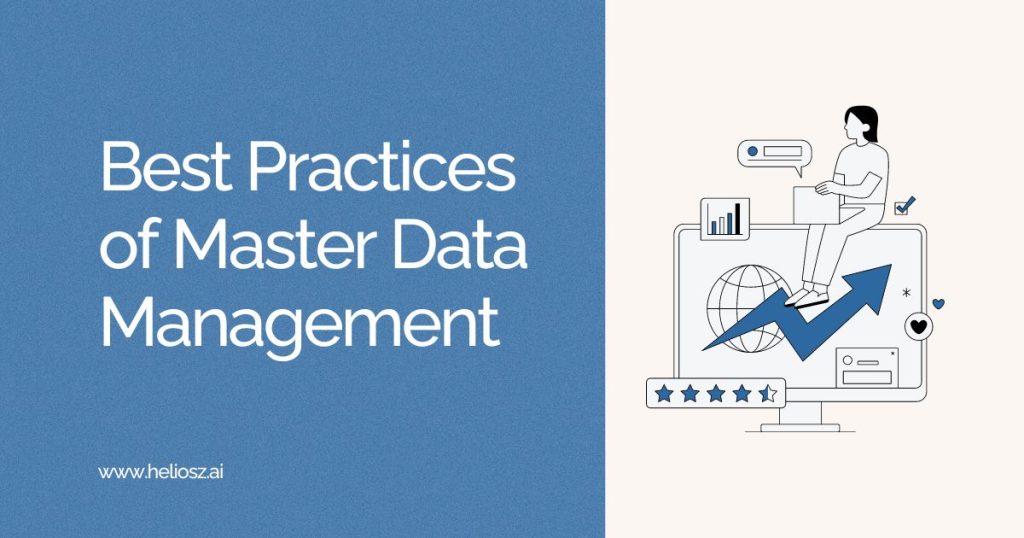Every business is loaded with a huge amount of data and there are many pitfalls in the data while making decisions. By implementing the best data engineering practices in your business you can simplify your future and ensure smoother operation for your business.
In this article, you will learn about,
What is Data Engineering
Data Engineering is a broad field. It involves the practice of building a new system for collecting the data. Here, the data are collected and stored for analytical and operational use.
In the digital age, businesses rely heavily on data to make informed decisions, gain competitive advantages, and drive growth.
However, without proper management and engineering, data can become overwhelming and difficult to harness effectively.
This is where data engineering practices come into play.
By following these practices,
- Businesses can optimize their data operations,
- Improve data quality, and
- Derive valuable insights.
In this article, we will explore six data engineering practices that can benefit your business, along with examples showcasing their advantages.
Top 6 Data Engineering Practices for your business
Data Governance
Data governance involves defining policies, procedures, and guidelines for data management and usage within an organization.
By implementing data governance practices, businesses can establish a robust framework for data handling, minimize data errors, and enhance decision-making processes.
For example, a retail company may implement data governance to ensure consistent customer data across all sales channels, resulting in improved customer experience and targeted marketing campaigns.
Data Quality
Data quality is crucial for reliable analysis and decision-making.
By maintaining high data quality standards, businesses can trust the insights derived from their data.
Some of the ways to ensure data quality are,
- Implementing data validation checks
- Data cleansing processes
- Data profiling techniques
For instance, a healthcare organization may implement data quality practices to ensure patient records are complete and accurate, enabling better diagnosis and treatment decisions.
Data Integration
Data integration involves combining data from various sources into a unified view.
It allows businesses to gain comprehensive insights by analyzing data from multiple systems or departments.
Efficient data integration enables timely and accurate reporting, enhanced data analysis, and improved operational efficiency.
For example, an e-commerce company may integrate data from its website, inventory system, and customer support system to gain a holistic view of customer behavior and preferences.
Data Security in Data Engineering Practices
Data security is of utmost importance in today’s data-driven world. It involves protecting data from unauthorized access and ensuring its confidentiality, integrity, and availability.
By implementing robust security measures, such as data encryption, access controls, and regular security audits, businesses can safeguard sensitive information and prevent data breaches.
For instance, a financial institution may employ data security practices to protect customer financial data, maintaining trust and compliance with regulatory requirements.
Data Documentation
Data documentation involves documenting data sources, data transformations, and data definitions, providing a clear understanding of the data and its context.
Proper documentation facilitates data discovery, and data lineage tracking, and promotes collaboration among data engineers, data scientists, and business stakeholders.
Using documentation techniques and tools like data catalogs or metadata management systems can streamline data documentation.
For example, a manufacturing company may document the data collected from its production lines, enabling easier troubleshooting and process optimization.
Data Analytics and Visualization in data engineering practices
By applying advanced analytics techniques and visualizing data in intuitive ways, businesses can uncover patterns, trends, and correlations that drive better decision-making.
Leveraging data analytics tools and techniques, such as machine learning algorithms or predictive modeling, can provide actionable insights.
For instance, a marketing agency may analyze customer demographics, purchase history, and website interactions to create targeted marketing campaigns, resulting in increased conversion rates.
Conclusion
Implementing data engineering practices is essential for businesses looking to leverage the power of their data.
Data governance, data quality, data integration, data security, data documentation, and data analytics and visualization are all critical components of an effective data engineering strategy.
By adopting these practices, businesses can enhance data-driven decision-making, improve operational efficiency, and stay ahead of the competition.
To embrace these best practices and unlock the true potential of your business data, contact our experts today!






























